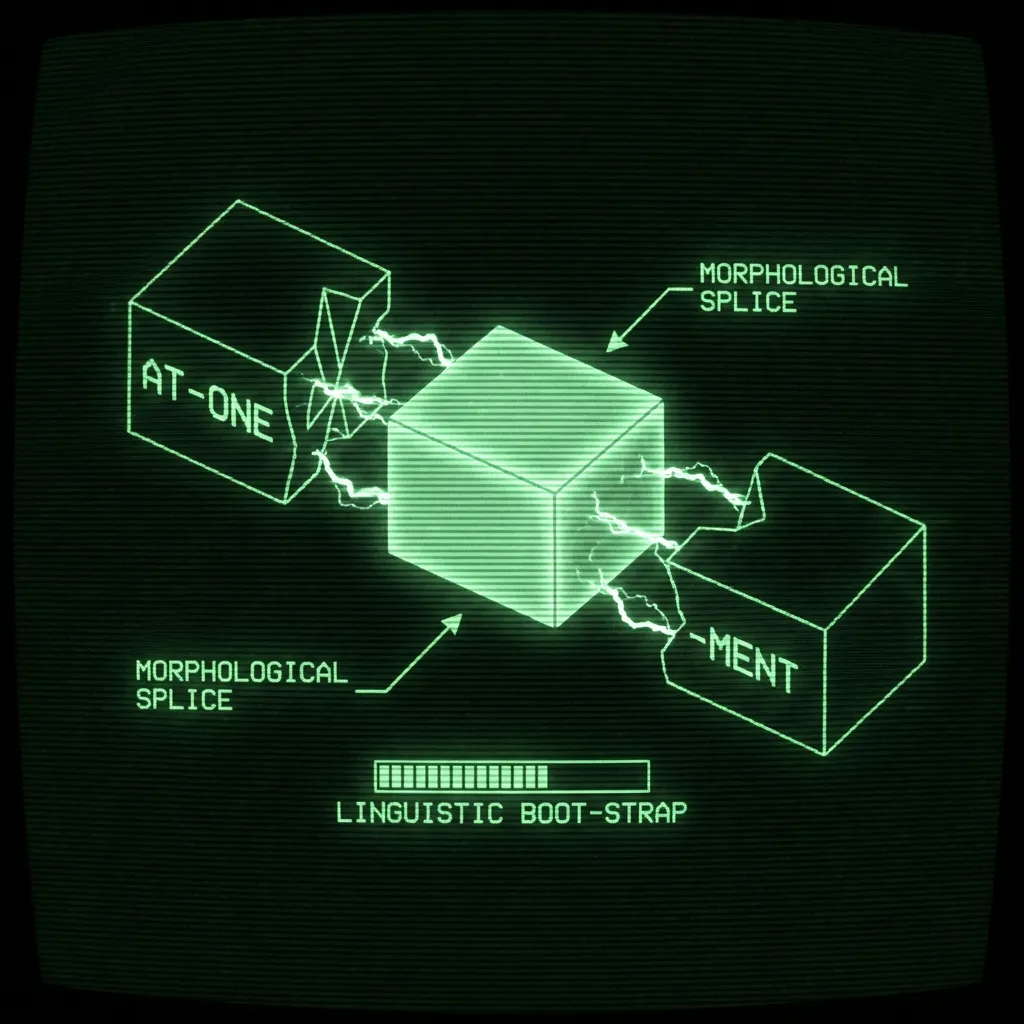TL;DR
- Atonement began as at onement “state of being at one; reconciliation” (c. 1513).
- Morphology = at (OE preposition) + one (PIE *óynos) + -ment (French deverbal noun ending).
- The theological sense “Christ’s reconciling work” crystallised after Tyndale’s 1526 NT translation.
- The coinage shows how early Modern English cannibalised native roots and French affixes to plug lexical gaps.
- Beneath the folk etymology lies a snapshot of English still boot-strapping itself into a full literary medium.
Beneath the folk etymology of “at-one-ment” lies a snapshot of Early Modern English still boot-strapping itself into a full literary medium by cannibalizing native roots and foreign affixes.
For the theological story of how that neologism elbowed out Latin, Greek, and Hebrew mainstays, see the companion study “From Reconciliatio to Atonement”.
From Phrase to Lexeme: At onement → atonement#
The earliest attestation is a Chancery petition (1513) pleading that “they myght come to at onement.”
Here at one meant “in harmony,” and ‑ment (via Anglo‑French ‑ement) nominalised the whole.[^1]
By 1530 William Tyndale, short on ready English theology terms, welded the phrase into atonement in his Pentateuch: “to make an atonement for the soul.”
Printing fixed the spelling, and pulpits fixed the sense.
Morphological Deep‑Dive#
| Piece | Source | Original Meaning | Note |
|---|---|---|---|
| at | Old English æt | “near, toward” | Cognate Go at, Norse at |
| one | OE ān ← PIE óynos | “single, unified” | Proto-number root resurfacing in Latin unus |
| -ment | Old French -ment ← Lat. -mentum | “action/result” | Think government, fulfilment |
A Brief Semantic Timeline#
- 1513‑1525 (social/legal) – “settlement of accounts or quarrels.”
- 1526‑1611 (biblical) – Tyndale & KJV cement sacrificial nuance.
- 1650‑1800 (doctrinal) – Calvinists debate limited vs. universal atonement; word acquires capital‑A mystique.
- 19‑20 C (figurative) – “He made atonement with his past” broadens usage; folk back‑formation “at‑one‑ment” popular in sermons.
Footnotes#
Sources#
- Oxford English Dictionary Online. “Atonement.” Accessed 1 Aug 2025.
- Tyndale, W. The New Testament, Worms 1526; ed. Daniell, D., Yale UP, 1995.
- Lass, R. History of English Lexicology. Cambridge UP, 2022.
- Skeat, W. W. Etymological Dictionary of the English Language. Clarendon, 1910.
- Durkin, P. “The Impact of French on English Word-Formation.” Transactions of the Philological Society 120 (2023): 145-181.
- McGrath, A. Iustitia Dei: A History of the Christian Doctrine of Justification. Cambridge UP, 2021.
- Hoad, T. F. English Word-Formation in the Early Modern Period. Routledge, 2024.
